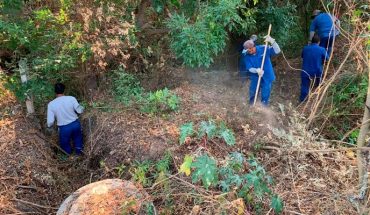Carolina Haldemann, the journalist of Channel 26 and Pampita Online, is currently experiencing a tough challenge in health issues. In early June, while conducting an interview, he began to notice that he was not heard at all well, and associated it with a simple aphonia, derived from the winter season of the year, for which he took ginger tea, lemon and honey, and throat candies seeking to recover his voice. It was after a few days, that a colleague recommended that he make a consultation and do a study on his vocal cords because he noticed that “it was not a simple aphonia, but that he felt a blow”. In the consultation they told him to perform a rhinofibrolaringoscopy (fiber optic study that allows to see the nose, cavum, pharynx and larynx). That led them to a first diagnosis: symmetrical bilateral nodules in the vocal cords. However, he stressed that: “It’s very common in people who work with the voice.” The studies continued to rule out some other anomaly and attended by the head of surgery of the German Hospital and otolaryngologist, Dr. Sebastian Sturla, and his team, they did a laryngeal stroboscopy (study of the vibration of the vocal cords) and there, in addition to the nodules, the study showed that she had bleeding in the larynx. Now with the full diagnosis the doctors told him the steps to follow: “It is not serious, but I have to have patience and learn to speak again to deflate the strings and shrink the nodules and find my voice ‘normal’, or ‘almost normal’, again, without demanding the muscles. A kind of formatting the record of what I already knew how to do, which was to talk, and relearn something as basic as that so that I could use the voice again,” he told Teleshow.In the middle of this process, he wrote a disclaimer on his networks where he explained what happens to him and how he feels about it.” There are times when we have to accept that we can’t do everything, but we can take care of being better,” he explained and added: “Today I had to accept that my voice does not come out and no matter how desperate it is, I can’t do it. Something as natural as talking, something I learned to do at six months of age. As much as I physically can’t do it today, I know everything is going to be fine and I’m going to achieve it, like everything you set out to do in life.”
For his part, the medical team explained how he continues his recovery process: “The doctors assure me that in 15 days I would practically be talking. Maybe not normal of everything, but already with an understandable voice”. On that date, they will do a study again to see the evolution of both bleeding and nodules. However, if in 15 days the treatment does not have the result expected by the professionals, you must perform a new phoniátric treatment that will last longer. The goal is to delay the operation: “That would be the last instance.” The goal is to avoid having to get to the operation. “Surgery involves removing the nodule or polyp from the vocal cord. This type of treatment only occurs when the nodules or polyps are very large or have been present for a long time. If the ropes were pulled out, I would be mute. That is irreversible. The nodules are reversible,” the communicator said.




